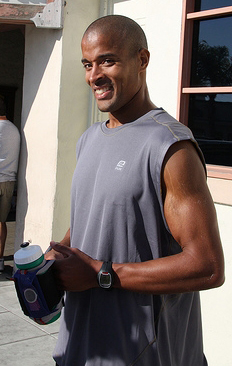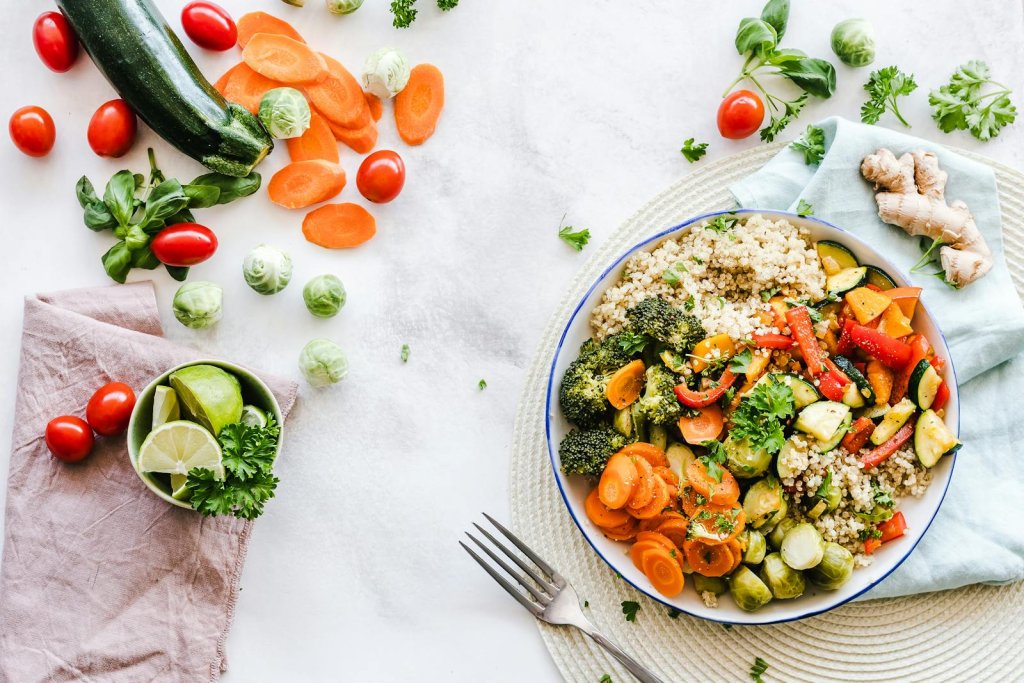David Goggins’ workout routine and diet plan are widely recognized as some of the most extreme—and inspiring—systems in the fitness world. He’s more than a Navy SEAL, ultramarathon runner, and bestselling author: he’s a living testament to how the mind can push the body beyond all perceived limits. In this comprehensive, research-based guide, you’ll discover how Goggins structures his days, what he eats, the secrets behind his legendary endurance, and exactly how to implement his lessons for your own goals—whether you’re a beginner or advanced athlete.

Who Is David Goggins? Why Does He Inspire Millions?
David Goggins was once an overweight, unhappy exterminator who transformed himself into one of the world’s top endurance athletes and military legends. He’s the only person to complete Navy SEAL, Army Ranger, and Air Force Tactical Air Controller training, and he’s completed over 60 ultramarathons, set a world pull-up record (4,030 in 17 hours), and authored two bestselling books:
Can’t Hurt Me and
Never Finished.
His story—and his routine—matters because he shows that discipline, honesty, and relentless work can help anyone shatter mental and physical barriers.
Learn more at the official Goggins website.
David Goggins Workout Routine: 2025 Deep Dive
Why Goggins’ Training Is Unique
Goggins trains for ultra-endurance, but the real secret is his mindset. He combines running, cycling, functional strength, and mobility into a daily routine that’s designed not just for physical toughness, but for mental fortitude.
1. Morning: The Foundation of His Day
- Wake-up: 3:45–4:00 AM. He avoids the snooze button to build discipline from the first moment.
- Fasted Run: 10–20+ miles (often more when training for races). He runs outside no matter the weather, echoing his belief: “You can’t hurt me.”
Source: Routines.Club, 2025
2. Post-Run Stretch & Mobility
- 20–30 minutes of yoga, foam rolling, and deep static stretching to reduce injury risk and aid recovery.
- This is a non-negotiable part of his routine, not an afterthought.
3. Late Morning: Cycling for Endurance and Recovery
- Cycling: 50–100+ miles, used both as cross-training and “active recovery” after running.
- Helps build cardiovascular endurance and gives his joints a break from pounding the pavement.
4. Midday: Functional Strength & Calisthenics
- Short Run: Another 5–8 miles (for daily mileage targets).
- Strength Circuit (2–3x/week):
- Deadlifts: 3×10 (heavy, challenging weight)
- Pull-ups: 3×10–20 (spread across the day; sometimes over 100 total)
- Push-ups: 5×25
- Squats: 5×5
- Lunges: 3×12
- Core Training (3x/week):
- Swiss ball oblique crunches: 3×25
- Russian sit-ups: 3×10
- V-ups: 3×10
- Broomstick obliques: 3×10
- Reference: Fitness Volt, 2025
5. Evening: Optional Second Run, Cycling, or Bodyweight Training
- Second Run or Bike: 3–5 mile easy jog or 25-mile bike ride.
- Additional Calisthenics: Push-ups, sit-ups, pull-ups for volume.
6. Nightly Recovery Routine
- Stretching: Up to 2 hours with deep static holds and foam rolling.
- Ice Baths: Regularly used to fight inflammation and enhance recovery.
- Mobility work: Yoga, dynamic stretching, and self-myofascial release.
Goggins’ Weekly Training Volume
- Running: Consistently logs 100–150 miles per week (verified by public interviews and race prep).
“Goggins runs anywhere from 10–25 miles a day, totaling between 100–150 miles a week, not including cycling or calisthenics.”
— Fitness Volt, 2025 - Cycling: Can reach up to 200+ miles per week.
- Strength/Calisthenics: Multiple short sessions (bodyweight + weighted) spread over the week.
Sample Weekly Training Schedule
| Day | AM Run | Midday Work | PM Session |
|---|---|---|---|
| Monday | 15 miles | Pull-ups, push-ups | 25-mile cycle |
| Tuesday | 12 miles | Deadlifts, squats | Mobility/yoga |
| Wednesday | 10 miles | Core workout | Easy 5-mile run |
| Thursday | 18 miles | Lunges, stretching | 50-mile cycle |
| Friday | 14 miles | Calisthenics | Light run |
| Saturday | 20 miles | Long stretching | Ice bath |
| Sunday | 8–10 miles | Restorative yoga | Easy cycle |
He adapts the intensity for race prep, injury prevention, or recovery needs. Even on “recovery” days, he does light cycling, yoga, or walking.
David Goggins Diet Plan & Nutrition: How He Fuels Ultra-Endurance

Nutrition Philosophy
Goggins’ eating style is clean, high-protein, low in processed carbs, and built around intermittent fasting. The primary goals: fuel recovery, stay lean, and maintain steady energy for brutal training loads.
Key Principles
- Intermittent Fasting (16:8): Fasts from 6:30 PM until about 10:30 AM, eating within an 8-hour window.
- Macro Split: ~40% Protein (lean meats, eggs, fish), ~40% Healthy fats (nuts, seeds, olive oil, avocado), ~20% Complex carbs (sweet potato, quinoa, oats, greens)
Sample Day of Eating (2025)
| Time | Meal Example |
|---|---|
| 10:30 AM | Protein shake (almond milk, berries, chia), 2 eggs, spinach |
| 1:00 PM | Grilled chicken breast, sweet potato, roasted broccoli, avocado |
| 4:00 PM | Greek yogurt with walnuts, banana or berries |
| 6:00 PM | Baked salmon or steak, quinoa, mixed greens, olive oil drizzle |
| Post-Dinner | Water, sometimes herbal tea, small handful of nuts if needed |
- Hydration: Minimum 1 gallon water per day, plus electrolytes after long runs or hot weather.
- Supplements: Multivitamin, fish oil (omega-3), creatine, magnesium, vitamin D, EAAs, caffeine (as needed).
- No processed foods or sugar: Avoids bread, pastries, fried foods, and soda.
- During heavy race prep or after ultra-events: Goggins may increase complex carbs to replenish glycogen.
References:
Set For Set: Goggins Nutrition,
The Primal: Goggins Diet,
Bodyweight Training Arena
Supplements & Recovery: How Goggins Stays Injury-Free
Supplements
- Multivitamin
- Fish Oil (Omega-3)
- Creatine
- Magnesium & Vitamin D
- EAAs (Essential Amino Acids)
- Caffeine (pre-workout)
Recovery Habits
- Stretching: Up to 2 hours nightly, targeting tight areas from running/cycling.
- Foam Rolling/Massage: Essential for muscle recovery and pain prevention.
- Ice Baths & Epsom Salt Baths: Used after long runs for rapid recovery.
- Mobility Drills: Dynamic stretching, yoga poses, balance work.
- Prioritizes Sleep: Even with busy days, aims for 6–7 hours per night.
He treats recovery as seriously as training—saying, “If you can’t recover, you can’t train hard again tomorrow.”
The Goggins Mindset: The 40% Rule, Accountability Mirror, and Embracing Discomfort
1. The 40% Rule
Goggins is famous for saying that when you think you’re done, you’re really only at 40% of your potential. This is his most quoted concept, designed to push people beyond their mental limits.
2. The Accountability Mirror
Every morning, he faces himself in the mirror, sets honest, blunt goals, and eliminates excuses. This self-confrontation is the foundation of his discipline.
3. Embrace Discomfort
He intentionally chooses difficult paths—running in bad weather, doubling down on hard days—because he believes “the only way to grow is through suffering.”
4. Taking Souls
Goggins uses doubters, negative comments, and competition as motivation. He “takes souls” by outperforming expectations—especially his own.
5. Consistency Over Perfection
He never skips a day, even when tired, traveling, or injured. The habit is more important than intensity on any single day.
For more on these mindset strategies, see
Can’t Hurt Me,
Never Finished, and
YouTube interviews.
Can You Follow David Goggins’ Routine? Safety & Adaptation
Warning: Goggins’ routine is elite-level and not safe for beginners or those with medical issues. But you can adapt his principles for your level:
Beginner Blueprint Inspired by Goggins
- Running: Start with 1–2 miles, 3x per week. Increase slowly.
- Bodyweight Strength: 3 sets each—push-ups (10–15), assisted pull-ups (5), air squats (15).
- Core: Planks (30 sec), sit-ups (10), side crunches (10 per side).
- Stretching: 15 minutes after every session.
- Mindset: Use a journal for daily honesty—your “accountability mirror.”
- Nutrition: Eat whole, unprocessed foods. Try time-restricted eating (12:12 fasting to start).
- Recovery: Prioritize sleep and hydration.
Intermediate/Advanced Blueprint
- Running: 20+ miles per week, add intervals and long runs.
- Strength: Weighted squats, deadlifts, push-ups, and high-rep pull-ups.
- Mobility: Add yoga or advanced stretching.
- Mindset: Embrace discomfort and log daily goals.
Always consult your doctor before making major training or diet changes.
Frequently Asked Questions
- How much does Goggins run weekly?
Consistently 100–150 miles per week, especially during ultramarathon prep
(Fitness Volt, 2025). - Does he ever rest?
No traditional rest days; he does “active recovery” like light cycling, walking, or yoga. - What’s his core diet philosophy?
Intermittent fasting, high-protein, low-processed-carb, high-vegetable, whole-food focus. - Where can I find his latest routines and interviews?
Official FAQ,
Instagram,
YouTube.
Conclusion & Action Steps
David Goggins’ workout and diet aren’t just about exercise or food—they’re about building a mindset that thrives on challenge and consistency.
You don’t have to run 100 miles a week to benefit from his lessons. Start with one daily walk, a short workout, or a single honest goal—and build your own legacy of discipline.
Ready to go further?
- Start your “accountability mirror” today
- Add 10 minutes of stretching to your night routine
- Fuel with clean food, and push through your comfort zone
- Check out Goggins’ official resources for inspiration
References:
David Goggins Official
Fitness Volt – Goggins Workout & Diet
Routines.Club – Goggins Routine
The Primal – Diet Analysis
Bodyweight Training Arena
